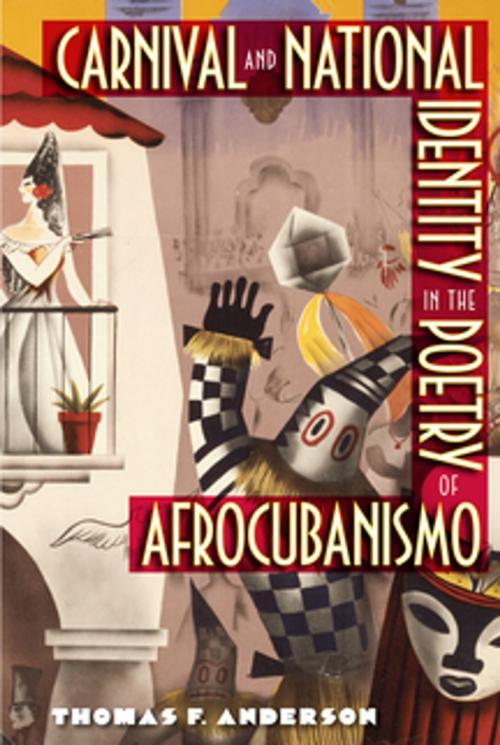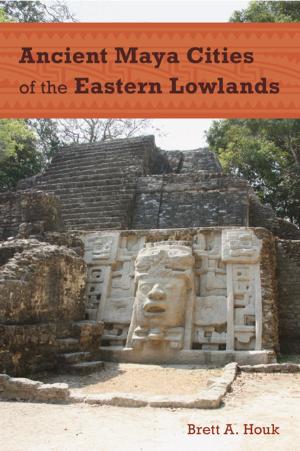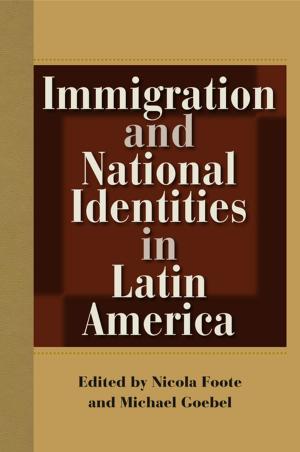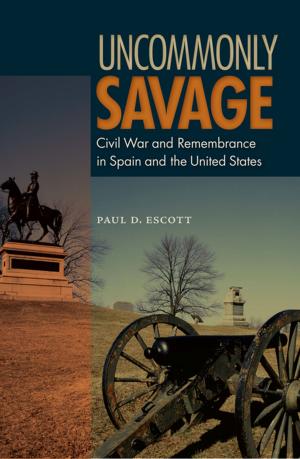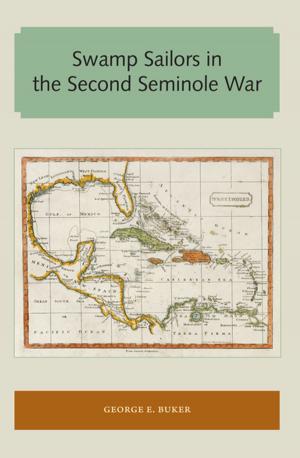Carnival and National Identity in the Poetry of Afrocubanismo
Fiction & Literature, Literary Theory & Criticism, Central & South American, Poetry History & Criticism, Nonfiction, Art & Architecture, General Art| Author: | Thomas F. Anderson | ISBN: | 9780813063171 |
| Publisher: | University Press of Florida | Publication: | April 3, 2017 |
| Imprint: | University Press of Florida | Language: | English |
| Author: | Thomas F. Anderson |
| ISBN: | 9780813063171 |
| Publisher: | University Press of Florida |
| Publication: | April 3, 2017 |
| Imprint: | University Press of Florida |
| Language: | English |
“Traces the ways that Cuban poets dealt with issues of national identity, reflected in their views of Afrocubanismo, often in response to historical changes in public and official opinions on the most visual manifestation of Afro-Cuban culture: carnival.”—Choice “Uncovers a wealth of literary texts, primarily poems, that chart the impact of las comparsas, Afro-Cuban festival dances, on mainstream Cuban life. . . . Investigates the ways in which the relationship between racial and ethnic divisions, and between castes and classes, created a literary movement full to the brim with emotional and sensational resonances.”—Wasafiri “Underscores the sociopolitical and historical contexts of these poems which have shaped the literary production and message of the Afrocubanismo movement. . . . A tour de force.”—Callaloo “Successfully plumbs the position of the Afro-Cuban performer and brings into sharp relief the way politicians historically sought to affect all elements of Cuban culture.”—New West Indian Guide Carnival and National Identity in the Poetry of Afrocubanismo offers thought-provoking new readings of poems by seminal Cuban poets, demonstrating how their writings affected the development of a recognizable Afro-Cuban identity. Thomas Anderson examines the long-running debate between the proponents of Afro-Cuban cultural manifestations and the predominantly white Cuban intelligentsia, who viewed these traditions as “backward” and counter to the interests of the young Republic. Including analyses of the work of Felipe Pichardo Moya, Alejo Carpentier, Nicolás Guillén, Emilio Ballagas, José Zacarías Tallet, Felix B. Caignet, Marcelino Arozarena, and Alfonso Camín, this rigorous, interdisciplinary volume offers a fresh look at the canon of Afrocubanismo and offers surprising insights into Cuban culture during the early years of the Republic.
“Traces the ways that Cuban poets dealt with issues of national identity, reflected in their views of Afrocubanismo, often in response to historical changes in public and official opinions on the most visual manifestation of Afro-Cuban culture: carnival.”—Choice “Uncovers a wealth of literary texts, primarily poems, that chart the impact of las comparsas, Afro-Cuban festival dances, on mainstream Cuban life. . . . Investigates the ways in which the relationship between racial and ethnic divisions, and between castes and classes, created a literary movement full to the brim with emotional and sensational resonances.”—Wasafiri “Underscores the sociopolitical and historical contexts of these poems which have shaped the literary production and message of the Afrocubanismo movement. . . . A tour de force.”—Callaloo “Successfully plumbs the position of the Afro-Cuban performer and brings into sharp relief the way politicians historically sought to affect all elements of Cuban culture.”—New West Indian Guide Carnival and National Identity in the Poetry of Afrocubanismo offers thought-provoking new readings of poems by seminal Cuban poets, demonstrating how their writings affected the development of a recognizable Afro-Cuban identity. Thomas Anderson examines the long-running debate between the proponents of Afro-Cuban cultural manifestations and the predominantly white Cuban intelligentsia, who viewed these traditions as “backward” and counter to the interests of the young Republic. Including analyses of the work of Felipe Pichardo Moya, Alejo Carpentier, Nicolás Guillén, Emilio Ballagas, José Zacarías Tallet, Felix B. Caignet, Marcelino Arozarena, and Alfonso Camín, this rigorous, interdisciplinary volume offers a fresh look at the canon of Afrocubanismo and offers surprising insights into Cuban culture during the early years of the Republic.
